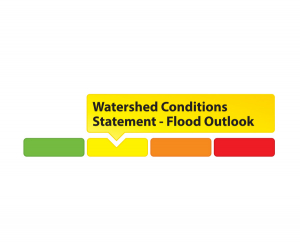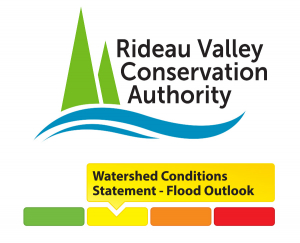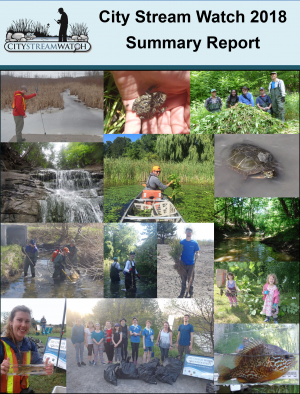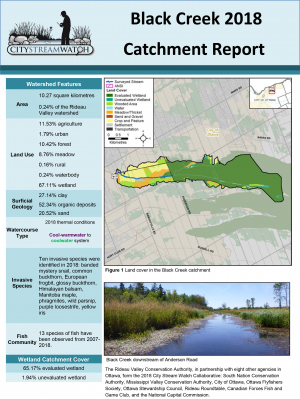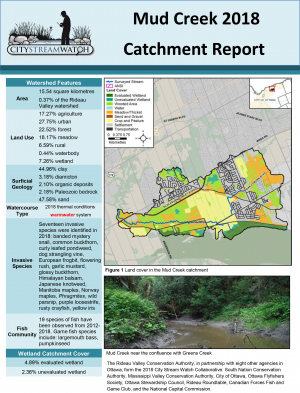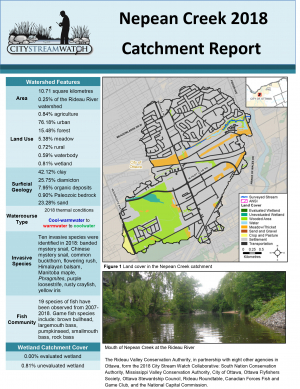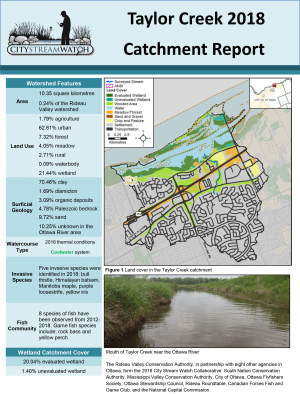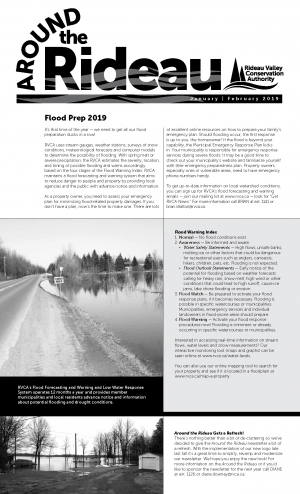Baxter Outdoor and Environmental Education Programs
Baxter Conservation Area offers outdoor and environmental education programs for students and community groups from preschool to grade 12 and beyond. Join us in our outdoor classroom and give your students the opportunity to explore and connect with nature. Our education programs provide students and visitors with interactive, hands-on, curriculum-based experiences where they will learn about the natural world and their relationship with it. We also offer outdoor education programs where students will learn navigation and outdoor survival skills as well.
Baxter can accommodate up to 60 students per day. All equipment is included in our programs and each program runs approximately 1.5 hours in length. Below please find descriptions of each of the programs we offer. Descriptions are offered as general guidelines — if there are specific objectives that you would like to accomplish, please let us know. Although grade levels are recommended for each program, these are also only guidelines. Please select any desired fields to narrow your search.
| Half Day Program | $200 / group * | maximum 30 students, 90 minutes with an RVCA instructor |
| Full Day Program | $275 / group * | maximum 30 students, two 90 minutes with an RVCA instructor |
| Self-directed | $2.50/person * | Interested in just visiting the conservation area with your class but not booking a program? The cost is $2.50/person. This does not include the use of buildings other than access to public washrooms. To reserve facilities, contact staff. Staff must still be contacted to book a self-directed visit. |
| Overnight Tent Camping (accommodations only) | 1-15 people - $75/night * 16-30 people - $150/night * 30+ people - contact for pricing * Additional buildings also available for rent (link to facility rentals) |
Take you class on an overnight adventure to our group camping area! Plan your own activities or book our education staff to provide programming during your stay (see above for pricing). |
* plus applicable taxes
Baxter’s Cancellation Policy: A minimum of fifteen (15) business days notice is required to cancel education programs at Baxter Conservation Area.
This policy gives schools/groups on our waiting list sufficient time to try and fill the program opening. If Baxter Conservation Area is notified of a cancellation less than 15 business days in advance of your scheduled visit, a cancellation fee of $50.00 will be charged.
In the event of severe weather conditions (i.e. thunderstorms, snowstorms, etc.), Baxter staff will make contact with your school/group by 7:00 AM the morning of your trip if we need to re-schedule or cancel the program on that day. There will be no charge for a cancellation made due to school bus cancellations or severe weather conditions on the day of your trip.
Baxter Education Program Descriptions
Super User
March 6, 2019 – The winter of 2018-19 has been an old-fashioned winter with lots of snow (over 250 cm to-date) and no significant thaw events. As such, the snowpack throughout the Rideau Valley Watershed is well above average. Current conditions at several RVCA snow course sites are indicating near record water content amounts in the snow for this time of year, generally not seen since the late 1970s.
Based solely on the fact we have above average water content, there is a potential for above average flooding this spring across the Rideau Valley Watershed, especially in low lying areas which have flooded in the past. However, the two other key factors influencing actual flood conditions are precipitation and temperatures as we move through March and into April. The current short-term forecast does not indicate any significant precipitation or above-seasonal temperatures; however, we know the daily temperature will begin to increase as we move through March.
Water levels on lakes and flows in the streams are presently at or slightly below normal for this time of year. Parks Canada staff who manage the water levels for the Rideau Canal have indicated that the levels will be maintained or lowered in the coming weeks to allow for water storage in the upper watershed lakes once the snowpack starts to melt.
City of Ottawa crews have begun the annual ice removal program on the Rideau River between Rideau Falls and Bronson Avenue. Crews will work to keep the ice from reforming until the spring freshet occurs (for more information: City of Ottawa information at 311).
With the changing levels that can be expected over the coming weeks, ice cover on lakes, ditches, local streams and rivers will continue to be unstable. Extreme caution should be exercised by everyone when near local waterbodies. Parents should inform their children of the risks and provide appropriate supervision.
As the temperatures start to warm up, there is also a concern for potential ice jams in local streams and rivers, as flows could quickly increase before the ice can melt. Residents are advised to monitor the river closely as spring progresses for signs of ice jams. RVCA staff will be monitoring conditions but we always welcome any unique observations from watershed residents.
There is also a concern for flooding along roadways due to current snow/ice build up on roadside ditches and some roads.
Residents in flood prone or low-lying areas, historically susceptible to flooding, should take the necessary precautions to protect their property, such as:
- Ensuring sump pump is clear, in good working condition and has a backwater valve
- Ensuring easy access to a portable backup generator and pump
- Ensuring downspouts are clear and the outlet is at least 3 metres from the dwelling
- Securing items that might float away as flows increase
- Removing valuable items from basements or lower floors that could be subject to flooding
- Keeping emergency phone numbers handy
- Familiarizing yourself with your municipality’s Emergency Preparedness Plan
RVCA will continue to monitor conditions and will issue further statements when or if there is an indication that the situation can be expected to change significantly.
"Rideau Valley Conservation Authority is a partnership of municipalities within the Rideau Valley watershed created under the Conservation Authorities Act to deliver a range of programs in watershed management and natural resource conservation."
RVCA Watershed Conditions Statements:
- Water Safety – High flows, unstable banks, melting ice or other factors that could be dangerous for recreational users such as anglers, canoeists, hikers, children, pets, etc. Flooding is not expected.
- Flood Outlook – Early notice of the potential for flooding based on weather forecasts, calling for heavy rain, snow melt, high winds or other conditions that could lead to high runoff, cause ice jams and/or lakeshore flooding or erosion.
- Flood Watch – Flooding is possible in specific watercourses or municipalities. Municipalities, emergency services and individuals in flood-prone areas should prepare.
- Flood Warning – Flooding is imminent or already occurring in area watercourses.
With High Snowpack, Be Prepared for Spring Flooding Across the Rideau Valley Watershed
March 6, 2019 – The winter of 2018-19 has been an old-fashioned winter with lots of snow (over 250 cm to-date) and no significant thaw events. As such, the snowpack throughout the Rideau Valley Watershed is well above average. Current conditions at several RVCA snow course sites are indicating near record water content amounts in the snow for this time of year, generally not seen since the late 1970s.
Based solely on the fact we have above average water content, there is a potential for above average flooding this spring across the Rideau Valley Watershed, especially in low lying areas which have flooded in the past. However, the two other key factors influencing actual flood conditions are precipitation and temperatures as we move through March and into April. The current short-term forecast does not indicate any significant precipitation or above-seasonal temperatures; however, we know the daily temperature will begin to increase as we move through March.
Water levels on lakes and flows in the streams are presently at or slightly below normal for this time of year. Parks Canada staff who manage the water levels for the Rideau Canal have indicated that the levels will be maintained or lowered in the coming weeks to allow for water storage in the upper watershed lakes once the snowpack starts to melt.
City of Ottawa crews have begun the annual ice removal program on the Rideau River between Rideau Falls and Bronson Avenue. Crews will work to keep the ice from reforming until the spring freshet occurs (for more information: City of Ottawa information at 311).
With the changing levels that can be expected over the coming weeks, ice cover on lakes, ditches, local streams and rivers will continue to be unstable. Extreme caution should be exercised by everyone when near local waterbodies. Parents should inform their children of the risks and provide appropriate supervision.
As the temperatures start to warm up, there is also a concern for potential ice jams in local streams and rivers, as flows could quickly increase before the ice can melt. Residents are advised to monitor the river closely as spring progresses for signs of ice jams. RVCA staff will be monitoring conditions but we always welcome any unique observations from watershed residents.
There is also a concern for flooding along roadways due to current snow/ice build up on roadside ditches and some roads.
Residents in flood prone or low-lying areas, historically susceptible to flooding, should take the necessary precautions to protect their property, such as:
- Ensuring sump pump is clear, in good working condition and has a backwater valve
- Ensuring easy access to a portable backup generator and pump
- Ensuring downspouts are clear and the outlet is at least 3 metres from the dwelling
- Securing items that might float away as flows increase
- Removing valuable items from basements or lower floors that could be subject to flooding
- Keeping emergency phone numbers handy
- Familiarizing yourself with your municipality’s Emergency Preparedness Plan
RVCA will continue to monitor conditions and will issue further statements when or if there is an indication that the situation can be expected to change significantly.
"Rideau Valley Conservation Authority is a partnership of municipalities within the Rideau Valley watershed
created under the Conservation Authorities Act to deliver a range of programs in watershed management and
natural resource conservation."
RVCA Watershed Conditions Statements:
- Water Safety – High flows, unstable banks, melting ice or other factors that could be dangerous for recreational users such as anglers, canoeists, hikers, children, pets, etc. Flooding is not expected.
- Flood Outlook – Early notice of the potential for flooding based on weather forecasts, calling for heavy rain, snow melt, high winds or other conditions that could lead to high runoff, cause ice jams and/or lakeshore flooding or erosion.
Flood Watch – Flooding is possible in specific watercourses or municipalities. Municipalities, emergency services and individuals in flood-prone areas should prepare.
Flood Warning – Flooding is imminent or already occurring in area watercourses.







